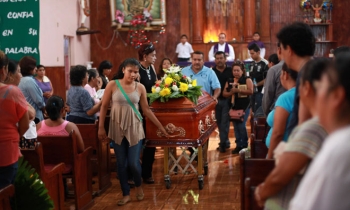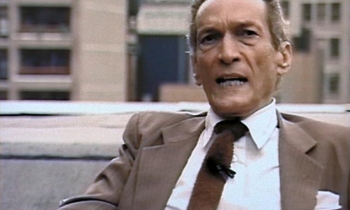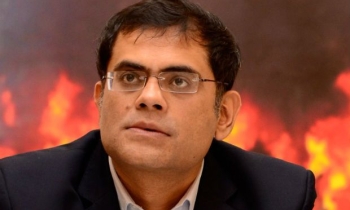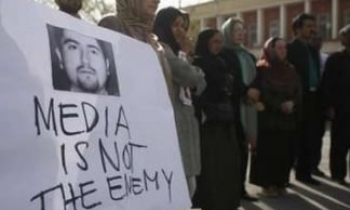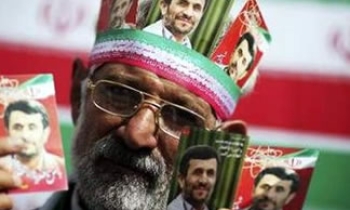An EU anti-corruption campaigner attacked Wednesday subsidies paid to some journalists covering the European Parliament, but officials defended the aid as needed to maintain the profile of EU bodies.
The attack highlighted growing euroskepticism about the embattled 25-nation bloc's institutions, widely seen as cut off from ordinary Europeans.
Independent MEP Hans-Peter Martin said a system which pays expenses to around 60 journalists to attend the plenary sessions at the parliament's second home in France raises serious questions about press freedom.
"It is ... very worrying," said the Austrian MEP, well known for campaigning against abuse of generous travel and other allowances paid to lawmakers in the 732-seat assembly, widely accused of being a gravy train.
For historical reasons the EU parliament has two homes: one in Brussels alongside the EU's other main institutions including the Commission and the Council, and the other in Strasbourg, eastern France.
Critics have long lambasted the massive cost of the arrangement, which sees a huge circus of MEPs, officials, journalists and others travel up and down from Brussels to Strasbourg for one week every month.
Payments have for years been available to journalists from EU countries to cover travel between Strasbourg and their home EU country, either by first class train or economy class air fare, said a parliament spokesman, Jaime Duch.
In addition they receive a 100 euro daily stipend to cover their hotel and meal expenses during a two-day stay in Strasbourg, he said, confirming a story in the International Herald Tribune.
But the spokesman denied that the aid amounted to bribery to provide good coverage, saying there was no interference in coverage and stressing that it was aimed at funding journalists who would otherwise not travel to Strasbourg.
"It helps poorer press outlets, and puts regional or local press on an equal footing with media which have more resources," he told AFP.
A spokesman for the European Commission also dismissed the criticism, saying there was a public interest in providing funding to cover EU institutions.
"I think this is entirely justified," said Mikolaj Dowgielewicz, spokesman for EU communications commissioner Margot Wallstroem, dismissing suggestions that paying journalists would lead to biased stories.
"Should we make such an assumption every time that a journalist goes to accompany his prime minister on a foreign trip, that he will write a story favourable to his prime minister?" he told AFP.
The Austrian EU lawmaker however said that, by accepting the funding, journalists risked losing the "objectivity" required to cover EU institutions properly.
"It's no accident that the most critical journalists are not those who profit from this system," he told AFP.
The debate comes as the EU struggles to improve its image, in particular after French and Dutch rejections last year of a first-ever EU constitution, which underlined the gulf between EU elites and ordinary Europeans.
Euroskepticism, which has long been a strong force in countries like Britain, but it has become an increasingly potent force elsewhere amid widespread questions about the direction of the half-century old EU project.
The EU commission spokesman said that bolstering contacts between journalists and EU institutions was a key way to improve communication with ordinary voters.
"Decisions made in Brussels and Strasbourg are relevant to people in (EU) member states. It's logical and justified that citizens should be informed about what goes on here," he said.

